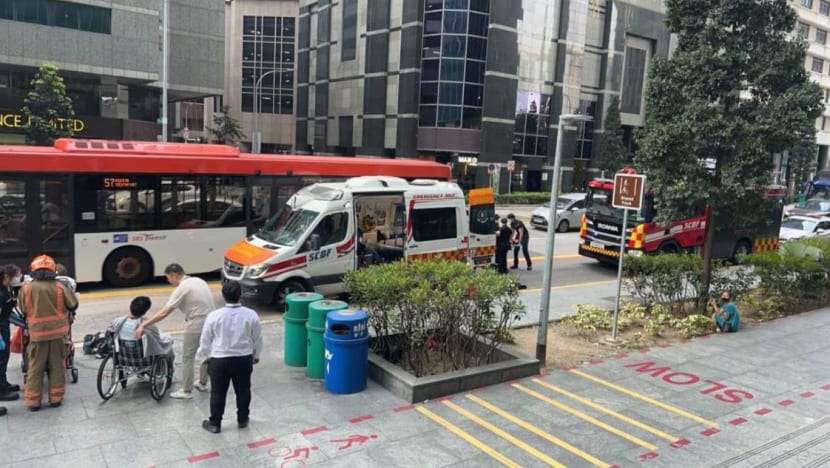Snap Insight: When landlines fail, those in need of urgent help are left vulnerable
Calls to emergency hotlines and other essential services were left hanging on Tuesday (Oct 8) due to a Singtel landline outage. Former journalist and NMP Nicholas Fang gives his take.


This audio is generated by an AI tool.
SINGAPORE: A Singtel disruption on Tuesday (Oct 8) afternoon silenced landlines across Singapore, affecting emergency hotlines 999 and 995 as well as other essential services that rely on fixed voice services.
The outage underscores the importance and continued relevance of good old-fashioned landlines in today’s society, despite a significant decrease in their usage due to the rise of mobile technologies and other communications channels.
It has been a while since I have had to use a landline to reach contacts, friends and family members. I am unable to think of anyone I know who still lists a home landline as a way to be contacted instead of a mobile phone number.
But clearly, there are many that still depend on landlines - close to 3,000 reports were filed on tracking website Downdetector at the peak of the outage at about 3.30pm.
Hospitals and other healthcare institutions, banks and other businesses were among those affected. In some cases, payment services were also hit.
Most worryingly, calls to emergency services provided by the Singapore Civil Defence Force (SCDF) and the Singapore Police Force (SPF) were also impacted.
MOBILE PHONES AND SOCIAL MEDIA
While some have bemoaned the ubiquitous nature of mobile phone technology and the unhealthy relationship many of us have with our mobile devices, these have proved a boon in the latest disruption as mobile and broadband services were unaffected according to Singtel.
Indeed, many institutions turned to these and even social media platforms as a way to reach out to their customers and stakeholders.
SCDF and SPF said via Facebook that members of the public who were experiencing difficulties reaching emergency service providers at the 995 and 999 hotlines could SMS for help instead.
Banks and hospitals took to social media to inform the public that they could email queries in, or tap on apps for information or to seek support.
Mainstream media platforms also took on greater significance, as people sought out updates and the latest information via trusted sources that were unaffected by the outage.
But these remain stop-gap measures at best, and the implications for those in need of urgent help, which by definition would encompass the users of emergency hotlines, remain significant.
IMPLICATIONS FOR THOSE IN NEED OF URGENT HELP
For those unfortunate enough to face a health or safety crisis during the outage, the option of using SMS to call for help may not be optimal or useful should the luxury of typing out a message not be afforded to them.
Having personally witnessed someone who had collapsed by the side of the road in the midst of the Singtel disruption, I was heartened to see ambulance services already on the scene. But I wondered how long it had taken for it to arrive, and how many other individuals in dire need of assistance were not as lucky.
It is still too early to know the causes of the outage and how long the effects will be felt, but a full investigation can be expected.
We in Singapore often grow complacent because of the rarity of such incidents, and the efficiency and efficacy of various public services and utilities we enjoy on a regular basis.
The latest outage is a good reminder for us not to take such things for granted, and for service providers to build in redundancies and contingency plans to ensure that any lasting and significant impacts are minimised for the society as a whole.
Nicholas Fang is a former Nominated Member of Parliament and journalist, and a strategic communications specialist. He is also director for security and global affairs at the Singapore Institute of International Affairs.
















